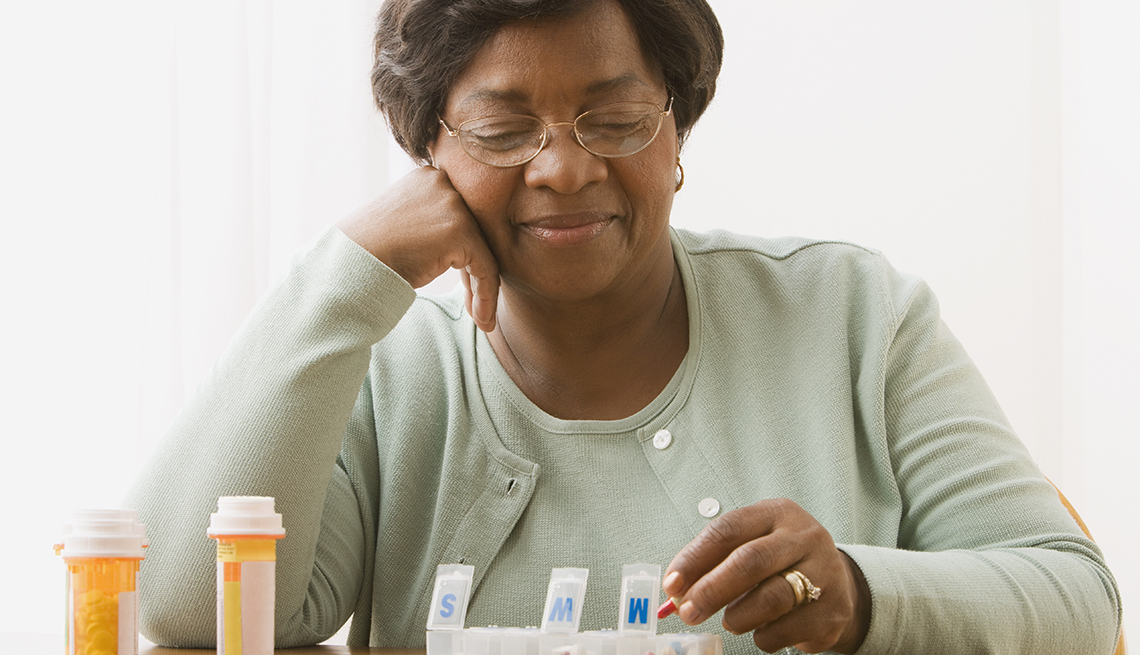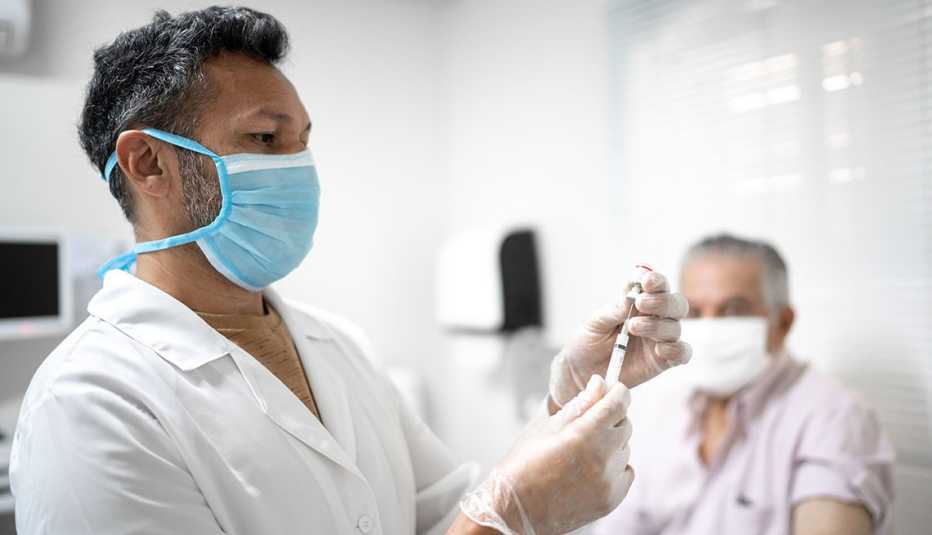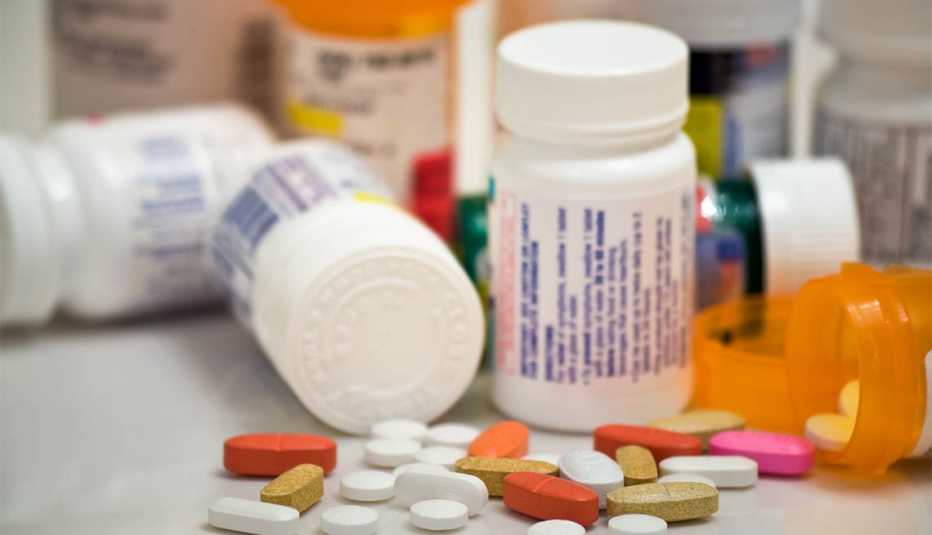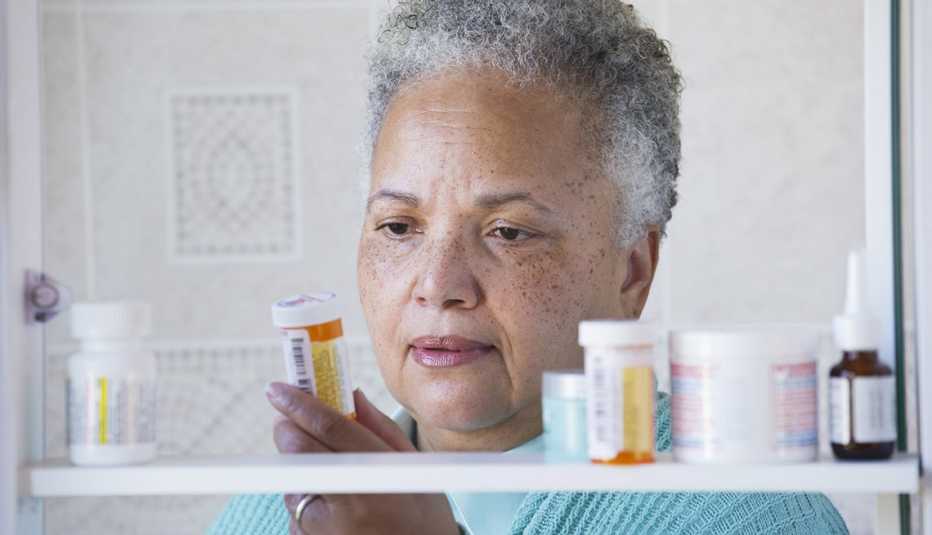AARP Hearing Center
Every morning, you take a pill for your blood pressure or diabetes, and then maybe at night, you take a statin for your cholesterol. Now, because of the pandemic, you're being asked to throw a coronavirus vaccination into the mix. While you should consult your doctor if you have concerns, medical experts say the vast majority of prescription drugs will work just as well after you get a COVID-19 vaccine, and they won't diminish the effectiveness of the shot you're getting to ward off the coronavirus.
How can doctors be so sure? It comes down to the fact that most of the maintenance medications we take go nowhere near the system in your body that the COVID-19 vaccines affect: your immune system.
The way the currently available vaccines work is that they expose a person's body to a small protein from the coronavirus that induces the immune system to start fighting the virus, as if the person had been fully infected, explains Adam Berman, M.D., an emergency medicine physician and associate chair of the emergency department at Long Island Jewish Medical Center in New York. The hope is that if your body learns to fight the coronavirus when you aren't infected, then later, if you are, it will be able to protect you by fighting off the infection extremely quickly.
Essentially, the vaccine makes a beeline for your immune system, and “the vast, vast majority of medications that patients take do not affect their immune systems,” says Berman.
Blood Thinners
If you are taking a blood thinner, the Food and Drug Administration (FDA) recommends informing your vaccine provider when you go in for your COVID-19 shot. Blood thinners prevent clotting, so even a small injury such as a needle piercing the skin can cause more bleeding or bruising than usual.
Neither the FDA nor the Centers for Disease Control and Prevention (CDC) say you shouldn’t receive a coronavirus vaccination just because you are on a blood thinner.
Stephen Moll, a professor of medicine at the University of North Carolina (UNC) and the medical director of Clot Connect at the UNC Blood Research Center, reiterates in a January blog post that people on blood thinners should get the COVID-19 vaccine. If you are taking a blood thinner, like warfarin, Eliquis, Pradaxa, Savaysa, Xarelto, Lovenox, Arixtra or another antiplatelet drugs, here are some things to watch for, he says:
- You probably will have a higher risk of bruising at the injection site.
- Keep pressure on the site of the injection for at least five minutes to reduce the risk of bruising.
- The smallest possible needle should be used. Ask for a 25-gauge size needle.
- Consider skipping one dose of your blood thinner, but be sure to check with your doctor before doing so.
For example, the statin you take to guard against high cholesterol interrupts your cholesterol production and has nothing to do with your immune system, says William Schaffner, M.D., an epidemiologist and professor of preventive medicine and health policy at Vanderbilt University. Blood thinners like Warfarin or Eliquis work on your body's blood clotting mechanism. Medicines to control diabetes, like Metformin, work on your glucose metabolism — again, nothing to do with your immune system.






































































